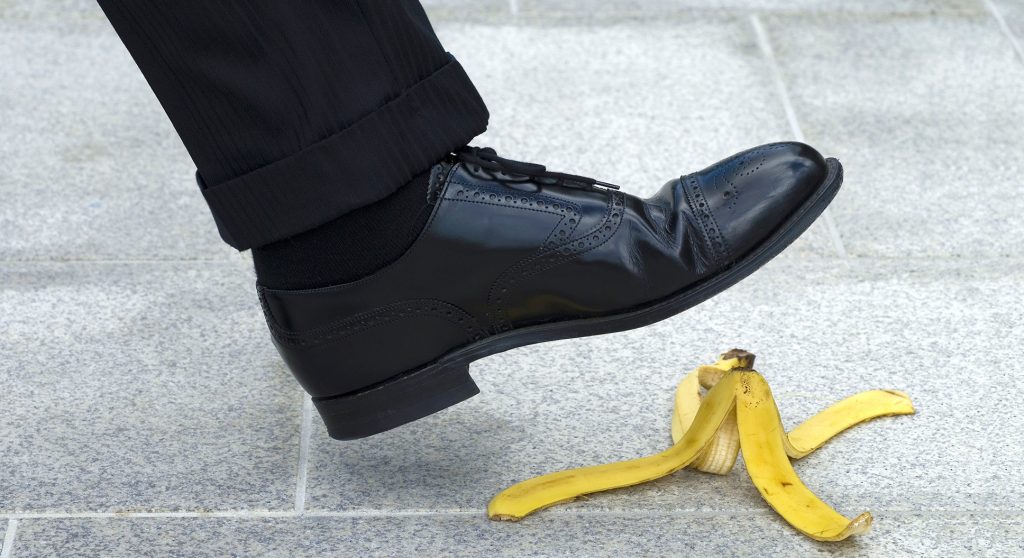“Tell me about your biggest weakness,” I recently asked a job-seeking client in a practice interview to help her prepare for her upcoming job interview for an administrative position. She smiled confidently, and gave me a predictable answer, one often heard from job seekers and which I call “the perfectionist answer”: “When I am given a task, I work very hard at getting it completed, and will not stop until it is perfectly done.” “So,” I said, taking a devil’s advocate role, “are you saying that you get really stressed out about it and that you compromise all other work to get it done?” She straightened up uncomfortably, looked me in the eye, and answered “No. Of course not! I always make sure all my work gets done.” “So, how then, is it a weakness? I would love to hire someone who sets high standards for themselves.“, I challenged her gently. Looking confused and mildly annoyed, she struggled to answer my challenge satisfactorily, eventually looking at me imploringly, “What do I say, then? What do I say that won’t make me look bad?”
Tips for Not Getting Tripped Up in Job Interviews – How to Beat Interviewers at their Own Game

I always tell my clients that the best way to successfully navigate the job search process is to put themselves in the shoes of employers — to try to imagine what they are thinking and expecting from a successful candidate.
To gain insight into the point of view of employers, I follow blogs and websites read by employers about human resources. One of my favourite sources is Inc., which is generally aimed at employers (though it offers very good advice for job seekers as well). I recently came across an interesting article titled “4 Mean Interview Tricks That Actually Work”, which offers interviewers some “dirty tactics to uncover a candidate’s real story during an interview.”
These interview tricks are aimed at shaking a candidate’s confidence enough to figure out whether they are genuine and not giving a false impression of themselves. The article focuses on hiring sales professionals, which is a job that typically demands unshakable confidence. However, soft skills such as confidence, self-awareness, conviction, and cultural fit are important no matter what job you’re applying for.
I have to admit that I was a bit surprised by how mean some of the tricks are, though, luckily for most job seekers, they are rarely used. However, job seekers could benefit from knowing and understanding these interview tactics, so they can protect themselves from being tricked into doing or saying something that might be held against them.
Trick 1: The “another job” — are you really committed to this job?
One typical concern by employers is that candidates might not be fully committed to their career path and that they might be hoping to secure a better or different job while working at this one. Charlton suggests to interviewers that at the end of interviews, they ask:
What if I told you I think we may have another position on the Support team that I believe you might be perfect for, would you want us to consider you for that position, too?
If candidates agree to be considered for a different role, then employers might consider that they are not fully committed to this position and therefore might not be best suited for the job.
From my experience, employers are right to assume that many candidates are keeping their options open and therefore might not be as committed as employers want. From the job seekers’ perspective, I think that trying to keep your options open is understandable, considering how insecure and poorly paid jobs often are in the present economy. However, it is important to remember that employers will be interviewing many candidates and they will prefer candidates who are highly motivated and committed, rather than those who seem opportunistic and vague.
Trick 2: The “Woefully Unqualified” Bomb — are you “a fighter”?
To challenge candidates’ confidence levels and assess how well they can handle rejection, Charlton suggests that employers pause half way through the interview, and say:
I gotta tell you Mark, up to this point I’m feeling that you’re just woefully unqualified for this position–to be candid. I held back, but I just don’t want to waste our time.
The candidate’s immediate response is important — if the candidate seems to give in and to accept that he is unqualified, then he may not be as confident as he should for the job. However, if he is able to face the criticism and even disagree and challenge the employer (politely, of course), he would show himself as substantially confident.
To prepare for this scenario in an interview, think through what your strengths are and how they match the qualifications listed by the employer on the job posting. Prepare examples from your work history that demonstrate your strengths and be willing to share those with employers in the interview.
Trick 3. Getting the Real “Breakup” Story — how much conflict have you really had with employers?
Charlton suggests that employers challenge candidates about past conflict with a boss, and make a special effort to get candidates to be honest:
We’ve all been there where our boss just doesn’t get it. I have horror stories myself. Let’s have a real conversation, what was your relationship with your last manager really like?
He suggests that employers encourage candidates to be honest, and then watch out for those who are too critical and angry.
From my experience, the most impressive candidates are those who are able to be honest about conflict with their boss, are not emotional and are able to take some responsibility for the relationship breakdown. Make sure not to sound too angry or to say anything negative about your former employer. If you have to discuss conflict in an interview, it is best to describe the situation in simple unemotional terms, take some responsibility for what you could have done differently and what you might have learned from the situation and make sure to try to reassure the interviewer that this is atypical — you generally get along well with employers.
Trick 4: The Zappos “Airport Driver.” — Are you able to maintain your professionalism at all times?
Zappos are well-known for an interview technique that they use to try to catch candidates when they are not paying attention. Charlton recommends to employers to catch the candidate off guard:
Have someone inconspicuous from your company pick up an out-of-town candidate from the airport. We all know that talkative driver who seems to keep asking questions–find someone in your company who can play this role. During the ride from the airport, have the driver politely probe the candidate with questions about the company and interview. On the way back, “How’d it go?” is a great start to the conversation, with more unapologetic probing.
The idea here is to see if candidates are discrete (will they share too much or say something negative?) and to assess how they treat others in the company.
This is a common concern for employers — you should expect your interviewer to ask the secretary/receptionist about your behaviour when they spoke to you — so make sure to leave the most professional and courteous impression possible on everyone you deal with in the company.
Bottom line: employers will try to challenge you to reveal your real self in an interview. Don’t let down your guard: expect them to try take you out of your comfort zone and be ready to handle their challenges in a calm, confident and professional manner.
Ask the Employment Specialist: How to handle shocking interview questions
I went for an interview at a large pharmaceutical company for an account manager position. The interview asked me the strangest question: If I was part of a group of 10 who were bound in chains in the middle of the room, how would I answer the phone when it rang at one of the desks far away from the chained group? I was caught off-guard. I responded that I would ask everyone to hop together towards the phone and the closest member would pick up the phone. I didn’t get the job.
Any thoughts on how to prepare and handle these weird questions that seem to have no relevance to the job?
Signed: Stranger than Strange (SS)
Dear SS,
In an article on this topic, Globe & Mail reporter David Kennedy explains that Canadian employers are starting to ask these types of challenging and strange interview questions to test a candidate’s critical thinking and problem-solving skills. Google and other large cutting edge has been doing this for a long time in their interviews.
The article quotes Scott Dobroski, associate director of corporate communications at Glassdoor. “Employers are looking to test a candidate’s critical thinking skills, as well as how they problem-solve on the spot and how they handle an unexpected challenge.” These employers aren’t necessarily looking for a right or wrong answer, adds Dobroski, who clarifies that employers are trying to see is how you can think out loud and come to your best solution on the spot. Dobroski suggests that the best way to answer is to take a minute, breathe, think about how the question and related your response back to the position that you’re interviewing for.
Glass Door presented the top 10 strangest interview questions asked by leading companies:
1. “What would you do if you were the one survivor in a plane crash?” — an Airbnb trust and safety investigator job candidate was asked.
As with all the oddball questions, interviewees should relate their answers back to the workplace, Dobroski noted. In this case, a potential response could include how to ensure the survivor’s safety, as well as checking the rest of the plane to make sure there were no other survivors. Asking about nearby resources, such as radio or cell phone towers, could also help show the interviewer that the applicant can think ahead and plan for emergencies.
2. “What’s your favorite ’90s jam?” — a Squarespace customer care job candidate was asked.
While this might seem goofy, Dobroski notes that this open-ended question is a way for a candidate to show off their positive qualities. “I could answer, ‘All Star’ by Smash Mouth. This reminds me to keep reaching for the stars,'” Dobroski said. “These can be very short responses, as long as you relate it back to the workplace.”
3. “If you woke up and had 2,000 unread emails and could only answer 300 of them, how would you choose which ones to answer?” — Dropbox rotation program job candidate was asked.
This is the type of situation that almost everyone deals with today, but it also allows the candidate to show how he or she would prioritize in a potentially stressful situation, Dobroski noted. Candidates could note that they’d search for names of people and subject line terms that would need attention first, for example.
4. “Who would win in a fight between Spiderman and Batman?” — Stanford University medical simulationist job candidate was asked.
This is a circumstantial type of question where a candidate could ask the interviewer for more information, such as whether the fight is in a cave (giving Batman an edge) or the top of a building (Spiderman). “This shows how you assess an unexpected challenge,” Dobroski noted. Giving a one-word answer such as “Spiderman” isn’t what employers want to hear (no matter how much you love Spidey.)
5. “If you had a machine that produced $100 dollars for life, what would you be willing to pay for it today?” — Aksia research analyst job candidate asked.
Candidates could ask the interviewer for more information, such as whether there is only one of these machines available or if there’s a glut. Asking about whether there is risk involved — such as whether the owner could be targeted by criminals — could also help show analytic skills, Dobroski noted.
6. “What did you have for breakfast?” — Banana Republic sales associate job candidate.
This sounds like small talk, but it allows the interviewer to gauge whether the candidate is an upbeat person and can relate to other people. Sales associates are asked questions all day long by customers, and keeping upbeat energy is important.
7. “Describe the colour yellow to somebody who’s blind.” — Spirit Airlines flight attendant job candidate was asked.
This question tests a candidate’s sensitivity and how they gather information. An applicant could ask whether the person is partially blind and when they became blind, helping to formulate an answer and deal with someone’s disability. “There are times when they have to work with passengers with special needs,” Dobroski noted.
8. “If you were asked to unload a 747 full of jellybeans, what would you do?” — Bose IT support manager job candidate was asked.
Unloading a plane full of jellybeans is no small task, so this allows a candidate to show off their project management skills. An interviewee could ask what the budget is, when the deadline is for unloading the plane, and whether they have machinery or staff to work with. That will help demonstrate the candidate’s ability to think through all the possible dimensions of the challenge.
9. “How many people flew out of Chicago last year?” — Redbox software engineer II job candidate was asked.
This question for an entry-level engineering job is, not surprisingly, geared toward assessing a candidate’s analytic skills. The interviewee could walk through their thinking, such as how many flights go in and out of Chicago each day, how traffic surges at the holidays, and come up with an answer. The interviewer isn’t interested in the correct answer, Dobroski noted. Rather, it’s all about how a candidate handles such problems.
10. “What’s your favourite Disney Princess?” — Cold Stone Creamery crew member job candidate was asked.
This question is all about getting a candidate to show off their personality. Responses should link back to the business, Dobroski noted. “You might say, ‘I like Cinderella. She epitomizes someone who works hard, is well liked and has overcome some challenges. That’s how I approach work,'” he said.
The bottom line about answering difficult unexpected questions is to stay calm and confident, to think through the answer out loud and take a risk trying to figure out the answer. The right answer is a lot less important than the process of answering the question.

